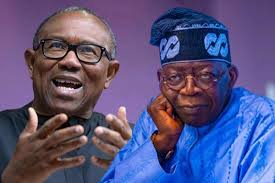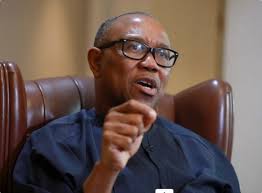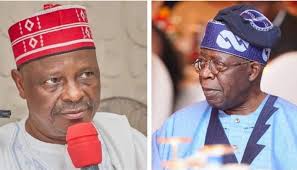
2027: Count me out of coalition against Tinubu, APC — Peter Obi
Peter Obi, a former Labour Party presidential candidate, has rejected any role in a coalition against All Progressives Congress and incumbent President Bola Tinubu in 2027.
Speaking to reporters on the fringes of a two-day National Conference on Strengthening Democracy in Nigeria, Obi provided the explanation Monday in Abuja.
Investigations showed that some leaders of the ruling All Progressives Congress and the main opposition parties have been negotiating the formation of a coalition to overthrow the APC.
According to the former governor of Anambra State, governments should prioritise ending poverty, improving public hospitals and schools, and ensuring the safety of people and property.
"Well, what matters to me is that we talk about Nigeria," he remarked. Whether we are going to do coalition… let’s talk about the future of the country, but frequently we abandon the country and what we need to do and talk about power grab.
"I have no interest in forming a coalition with the intention of seizing power. It is about talking about Nigeria.How is protecting Nigerians important to us?
How do we in Nigeria care about the average person? How do we care about our kids attending school? Right now, that is the most crucial factor.
Obi also demanded coordinated action to prevent political bribery.
The reason we must eliminate that is because you are inciting public theft.
"Because I will gain all the power and everything, including immunity from prosecution, if I steal it and use it to win an election." So we have to put an end to it. That is the motivation for the theft.
Dr. Mahamudu Bawumia, the former vice president of the Republic of Ghana and the New Patriotic Party's presidential candidate in the country's most recent general election, gave his keynote address on the topic of "Strengthening Nigeria's Democracy: Pathway To Good Governance And Political Integrity." He noted that the destruction of state institutions is a major threat to democracy.
"Mr. Chairman, the quality of institutions is one of the most crucial indicators of a healthy democracy; institutions capable of ensuring rights, including property rights, and checking wanton abuse of power.
“These institutions include the Independent Election Management bodies, the Judiciary, the Ombudsman, the Police, other law enforcement agencies, and many others…
“Celebrated Economists like Dani Rodrick, Daron Acemolgu, and others, have come to a firm conclusion that, when it comes to the determinants of growth, the quality of institutions towers above everything else.
“Unfortunately, whilst the culture of peacefully choosing leaders is being entrenched, these institutions are becoming weak and endangered. ”
The former presidential candidate equally expressed concern over growing poverty in the West African sub-region and by extension, the continent as a threat to democracy as he noted that the electorate are beginning to lose faith in representative government.
"What I call the Next Meal is one of the biggest threats to democracy today," he remarked. The famous Nelson Mandela, one of Africa's finest sons, once said, "As long as poverty, injustice, and gross inequality exist in our world, none of us can truly rest." I must echo this statement before I make my argument.
Democracy must serve as a tool to achieve a goal, ladies and gentlemen. The most successful democracies are those that provide public goods and services in an efficient manner, give citizens opportunity, and make a concerted effort to ensure that no one is left behind.
The statistics indicates that we do not have the option of doing nothing for Sub-Saharan Africa. According to a 2024 World Bank forecast, two-thirds of the world’s population in extreme poverty live in Sub-Saharan Africa.
“Back home, the World Bank’s 2024 review reveals that more than half of Nigerians live in multidimensional poverty.
“For Nigeria, and indeed much of Sub-Saharan Africa, our work is cut out for us. We need to take decisive actions to demonstrate that to govern is to advance the interest and welfare of the people.
“We need to reconfigure our economic systems, processes, and institutions in a manner that prioritizes the next meal for majority of our people. For far too long, the focus has been on ticking the boxes on democratic institutions much to the neglect of what those institutions have been able to produce for the ordinary citizen.
“The person who is unable to afford the next ‘Eba’ meal is unlikely to appreciate any data on democratic progress.
“Ladies and gentlemen, there is growing apprehension among the citizenry about the relevance and usefulness of government institutions, with many people losing faith in these institutions.
“This is concerning and portends a bleak future for democratic sustenance if we do not rise to the occasion, and quickly too.
“For our democracy to remain relevant and sustainable, actors need to ensure that citizens have confidence in the democratic system to address their needs and concerns, particularly basic needs, which I call the next meal principle.”
In his paper, ” Democracy in Nigeria: Challenges, Prospects and the 2027 Elections, ” Professor Jibrin Ibrahim bemoaned the absence of ideologically based parties, leaving an indifferent and confused electorate at the mercy of political platforms which he claimed are run by drug barons and warlords.
He said:” The most serious threat is the way the party system has developed.
“The key characteristics is that parties don’t have members but barons, warlords who impose their interests. The political parties that we have had lost their identities in terms of their manifestoes and what they stand for.
“The moment people can’t identify what parties stand for, it becomes impossible to have democratic commitment.
“A situation where they ( political parties) have no commitment to ideals of democracy.
“The real outcome is increasing apathy. The people have lost the right to exercise power because it has been confiscated from them. That creates the crisis of apathy.
“We must revive the belief that it is possible for Nigerians to regain their political power through the ballot.”
In his goodwill message, Vice president, Kashim Shettima, represented by Alhaji Hakeem Baba Ahmed, urged those entrusted with mandate to govern to live up to peoples’ expectations by protecting their interest.
He maintained that transparent governance and genuine commitment to needs of the citizenry would guarantee democracy against military dictatorship.
He added, “There is a huge responsibility on the shoulders of elected leaders in Nigeria to market our democracy in terms of the quality of governance and their conduct and disposition towards the rule of law and respect for the welfare and security of citizens.
“Nigerian democracy must mean a lot more than asking Nigerians to line up every four years to elect leaders. It must mean, in practical terms, that leaders commit to the demands of elected leadership in very transparent manners, that mandates given to them to govern make them servants to interests of the people, custodians of their assets, and protectors of their interests.
"The most effective leaders use their position of authority solely to advance the interests of their constituents. These interests include enacting laws that support citizens' economic security and well-being, ensuring that the judiciary is free from corruption and interference, ensuring that institutions and structures of governance operate with the utmost efficiency and integrity, ensuring that citizens' voices are heard and respected outside of election cycles, and upholding the fundamental principles of competition between parties and interests.
"In democratic systems, the challenge for leaders is to guide with a vision that identifies a course and destination that ultimately benefit the citizens, even in cases where some have valid concerns or reservations about them."
"Given the challenges that some of our policies invariably create, I would like to reassure Nigerians that our administration is well aware of the numerous concerns regarding our direction and goals."





